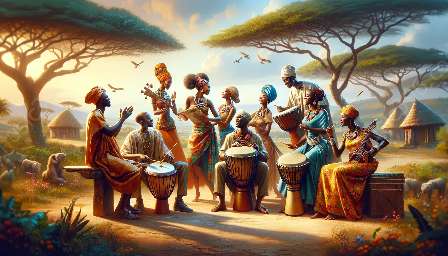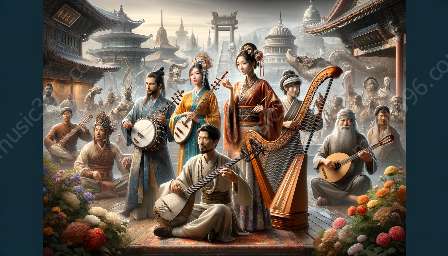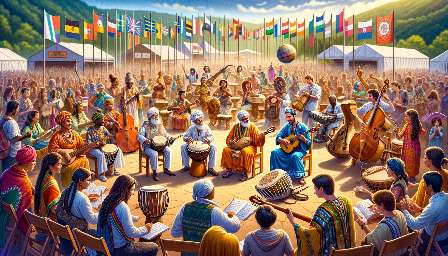Gypsy music has had a profound impact on social and political movements, often serving as a vehicle for expressing cultural identity and resistance against oppression. This article explores the cultural significance of gypsy music and its influence on world music, shedding light on its role in shaping historical events.
The Cultural Significance of Gypsy Music
Gypsy music, also known as Romani music, is deeply rooted in the traditions of the Romani people, a historically marginalized and persecuted ethnic group. The music reflects the nomadic lifestyle, rich traditions, and resilience of the Romani community, serving as a source of cultural preservation and identity. Through its distinctive blend of melodies, rhythms, and instrumentation, gypsy music embodies the stories and experiences of the Romani people, offering a window into their collective history and struggles.
Gypsy Music as a Tool of Resistance
Throughout history, gypsy music has been used as a powerful tool of resistance against social and political oppression. In times of adversity, the expressive and emotive nature of gypsy music has been harnessed to articulate the collective grievances of the Romani community. Lyrics often convey themes of love, loss, displacement, and the longing for freedom, resonating with audiences around the world. Gypsy musicians have adeptly channelled their experiences into poignant compositions that evoke empathy and solidarity, fostering a sense of unity among marginalized groups.
Gypsy Music's Role in Social Movements
In the context of social movements, gypsy music has played a pivotal role in advocating for the rights and recognition of the Romani people. Activists and musicians have utilized the platform of music to raise awareness about issues such as discrimination, poverty, and cultural marginalization faced by the community. Gypsy music has provided a voice for the Romani population, enabling them to assert their cultural identity and demand social justice. The music has served as an emblem of resilience, inspiring solidarity movements and fostering cross-cultural understanding.
Gypsy Music's Influence on Political Movements
Beyond its impact on social movements, gypsy music has also intersected with various political movements, both domestically and internationally. The emotive power of the music has been harnessed to mobilize support for political causes, bringing attention to issues affecting the Romani community. In instances of political upheaval and conflict, gypsy music has functioned as a form of protest, amplifying the voices of those advocating for change. It has transcended geographical boundaries, resonating with audiences worldwide and influencing political discourse.
Gypsy Music's Impact on World Music
The enduring influence of gypsy music on world music is indisputable, as it has contributed to the evolution of diverse musical genres. Its fusion of traditional folk elements with contemporary styles has enriched the global music landscape, inspiring artists across genres such as jazz, flamenco, and classical music. Gypsy music's emotive storytelling and virtuosic instrumentation have captivated audiences and musicians alike, shaping the soundscapes of countless cultures and genres.
Conclusion
Gypsy music's profound influence on social and political movements has been instrumental in amplifying the voices of the Romani community and advocating for social change. Through its cultural significance and emotive power, gypsy music has transcended boundaries, shaping historical events and enriching world music. Its enduring legacy serves as a testament to the resilience and creativity of the Romani people, highlighting the transformative power of music in advancing social and political causes.










































